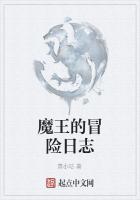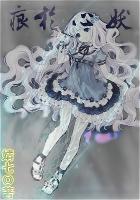Fragment #1 --
Strabo, xiv. p. 642:
It is said that Calchis the seer returned from Troy with Amphilochus the son of Amphiaraus and came on foot to this place (1). But happening to find near Clarus a seer greater than himself, Mopsus, the son of Manto, Teiresias' daughter, he died of vexation. Hesiod, indeed, works up the story in some form as this: Calchas set Mopsus the following problem:
`I am filled with wonder at the quantity of figs this wild fig-tree bears though it is so small. Can you tell their number?'
And Mopsus answered: `Ten thousand is their number, and their measure is a bushel: one fig is left over, which you would not be able to put into the measure.'
So said he; and they found the reckoning of the measure true.
Then did the end of death shroud Calchas.
Fragment #2 --
Tzetzes on Lycophron, 682:
But now he is speaking of Teiresias, since it is said that he lived seven generations -- though others say nine. He lived from the times of Cadmus down to those of Eteocles and Polyneices, as the author of "Melampodia" also says: for he introduces Teiresias speaking thus:
`Father Zeus, would that you had given me a shorter span of life to be mine and wisdom of heart like that of mortal men! But now you have honoured me not even a little, though you ordained me to have a long span of life, and to live through seven generations of mortal kind.'
Fragment #3 --
Scholiast on Homer, Odyssey, x. 494:
They say that Teiresias saw two snakes mating on Cithaeron and that, when he killed the female, he was changed into a woman, and again, when he killed the male, took again his own nature. This same Teiresias was chosen by Zeus and Hera to decide the question whether the male or the female has most pleasure in intercourse.
And he said:
`Of ten parts a man enjoys only one; but a woman's sense enjoys all ten in full.'
For this Hera was angry and blinded him, but Zeus gave him the seer's power.
Fragment #4 -- (2)
Athenaeus, ii. p. 40:
`For pleasant it is at a feast and rich banquet to tell delightful tales, when men have had enough of feasting;...'
Clement of Alexandria, Stromateis vi. 2 26:
`...and pleasant also it is to know a clear token of ill or good amid all the signs that the deathless ones have given to mortal men.'
Fragment #5 --
Athenaeus, xi. 498. A:
`And Mares, swift messenger, came to him through the house and brought a silver goblet which he had filled, and gave it to the lord.'
Fragment #6 --
Athenaeus, xi. 498. B:
`And then Mantes took in his hands the ox's halter and Iphiclus lashed him upon the back. And behind him, with a cup in one hand and a raised sceptre in the other, walked Phylacus and spake amongst the bondmen.'
Fragment #7 --
Athenaeus, xiii. p. 609 e:
Hesiod in the third book of the "Melampodia" called Chalcis in Euboea `the land of fair women'.
Fragment #8 --
Strabo, xiv. p. 676:
But Hesiod says that Amphilochus was killed by Apollo at Soli.
Fragment #9 --
Clement of Alexandria, Stromateis, v. p. 259:
`And now there is no seer among mortal men such as would know the mind of Zeus who holds the aegis.'
ENDNOTES:
(1) sc. Colophon. Proclus in his abstract of the "Returns" (sc.
of the heroes from Troy) says Calchas and his party were present at the death of Teiresias at Colophon, perhaps indicating another version of this story.
(2) ll. 1-2 are quoted by Athenaeus, ii. p. 40; ll. 3-4 by Clement of Alexandria, Stromateis vi. 2. 26. Buttman saw that the two fragments should be joined. (NOTE: These two fragments should be read together. -- DBK)AEGIMIUS (fragments)Fragment #1 --
Scholiast on Apollonius Rhodius, Arg. iii. 587:
But the author of the "Aegimius" says that he (Phrixus) was received without intermediary because of the fleece (1). He says that after the sacrifice he purified the fleece and so: `Holding the fleece he walked into the halls of Aeetes.'
Fragment #2 --
Scholiast on Apollonius Rhodius, Arg. iv. 816:
The author of the "Aegimius" says in the second book that Thetis used to throw the children she had by Peleus into a cauldron of water, because she wished to learn where they were mortal....
....And that after many had perished Peleus was annoyed, and prevented her from throwing Achilles into the cauldron.
Fragment #3 --
Apollodorus, ii. 1.3.1:
Hesiod and Acusilaus say that she (Io) was the daughter of Peiren. While she was holding the office of priestess of Hera, Zeus seduced her, and being discovered by Hera, touched the girl and changed her into a white cow, while he swore that he had no intercourse with her. And so Hesiod says that oaths touching the matter of love do not draw down anger from the gods: `And thereafter he ordained that an oath concerning the secret deeds of the Cyprian should be without penalty for men.'
Fragment #4 --
Herodian in Stephanus of Byzantium:
`(Zeus changed Io) in the fair island Abantis, which the gods, who are eternally, used to call Abantis aforetime, but Zeus then called it Euboea after the cow.' (2)Fragment #5 --Scholiast on Euripides, Phoen. 1116:
`And (Hera) set a watcher upon her (Io), great and strong Argus, who with four eyes looks every way. And the goddess stirred in him unwearying strength: sleep never fell upon his eyes; but he kept sure watch always.'
Fragment #6 --
Scholiast on Homer, Il. xxiv. 24:
`Slayer of Argus'. According to Hesiod's tale he (Hermes) slew (Argus) the herdsman of Io.
Fragment #7 --
Athenaeus, xi. p. 503:














